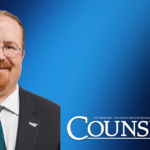Share
When Inducements Cross the Line
As I travel around the state and nation, I meet with counselors, interventionists, navigators, program managers, and owners who I know to be of the highest integrity. They have supported BHAP’s and CCAPP’s campaigns to end patient brokering and to remove financial motivations from treatment decisions. They each celebrated the passage of state and federal laws that end this disdainful practice. That is why I am often surprised when I hear questions about certain practices that cross the line—from straightforward referrals to patient inducement, or worse yet, patient brokering—from well-intentioned people.
Many honest professionals and providers, in an effort to assist their clients, end up participating in acts that are now considered illegal under House Resolution 6, the Eliminating Kickbacks in Recovery Act (EKRA), without even knowing it, although the Act and its subsequent state laws are very expansive and contain penalties that can be as high as $200,000. It seems to me that our profession and industry are sometimes under the false assumption that EKRA is for the “other guy.” The sentiment seems to be, “I’m not one of the bad apples.”
Good actors can and do break this law routinely and “good apple” or “bad apple” status does not distinguish the legal trouble that can occur when lines are crossed. As of yet, the federal government has not produced guidance as to what is considered a “patient inducement,” which is separate and distinct from brokering under EKRA. Patient inducement simply means offering anything of value to convince clients to enter treatment, and although we predict there will be detailed guidelines on what inducements are, now is the time for us all to perform a review of our business practices as they relate to marketing and to referring people to step-down levels such as outpatient and/or sober living.
Industry standards such as bundling sober living with outpatient will immediately be suspect. Are clients being invoiced for outpatient and provided housing at a discount or no cost? That would be giving something of value to enter treatment. Are clients who use a certain lab given a lower cost for treatment or sober living? That also is an inducement, even if it is being done by honest providers. Participating in these activities can lead to prosecution, which is an unnecessary risk when we could simply review contracts to ensure that housing and services are distinct and not dependent on one another.
Honest counselors can also be drawn into brokering and inducement scams if not knowledgeable about the law. Bonuses and financial rewards based on volume may feel as though you are appreciated and valued, but according to the law you have been given something of value for bringing clients to treatment. Referring clients to recovery residences that provide your clients with a free first month of rent is also an inducement, even if you are just trying to assist your clients in stepping down to outpatient. Although recovery residences may be offering the thing of value, your participation in the referral can land you in court.
Although my warnings may sound ominous, the remedy is simple: education. Learn how to write contracts that hold clients responsible for housing separate from treatment; attend a class explaining the new laws; inventory your typical transactions and spend time determining if there is something offered (at no cost or discounted) and ask yourself, “Would my dentist offer this?” If the answer is “no,” you may want to consider a change in behavior.
The passage of EKRA is not a case of “be careful what you ask for,” but rather it is a reminder that he who throws the first stone must be confident that his own house is in order before casting that stone at others.
About Me
Pete Nielsen is the President & Chief Executive Officer for the California Consortium of Addiction Programs and Professionals (CCAPP), CCAPP Credentialing, CCAPP Education Institute, and the National Behavioral Health Association of Providers (NBHAP). CCAPP is the largest statewide consortium of addiction programs and professionals, and the only one representing all modalities of substance use disorder treatment programs. NBHAP is the leading and unifying voice of addiction-focused treatment programs nationally. Mr. Nielsen has worked in the substance use disorders field for 20 years. In addition to association management, he brings to the table experience as an interventionist, family recovery specialist, counselor, administrator, and educator, with positions including campus director, academic dean, and instructor.
Mr. Nielsen is the secretary of the International Certification and Reciprocity Consortium and the publisher for Counselor magazine. He is a nationally known speaker and writer published in numerous industry-specific magazines. Mr. Nielsen holds a Master of Science in Counseling Psychology and a Bachelor of Science in Business Management.












 Counselor Magazine is the official publication of the California Association of Addiction Programs and Professionals (CCAPP). Counselor offers online continuing education, article archives, subscription deals, and article submission guidelines. It has been serving the addiction field for more than thirty years.
Counselor Magazine is the official publication of the California Association of Addiction Programs and Professionals (CCAPP). Counselor offers online continuing education, article archives, subscription deals, and article submission guidelines. It has been serving the addiction field for more than thirty years.